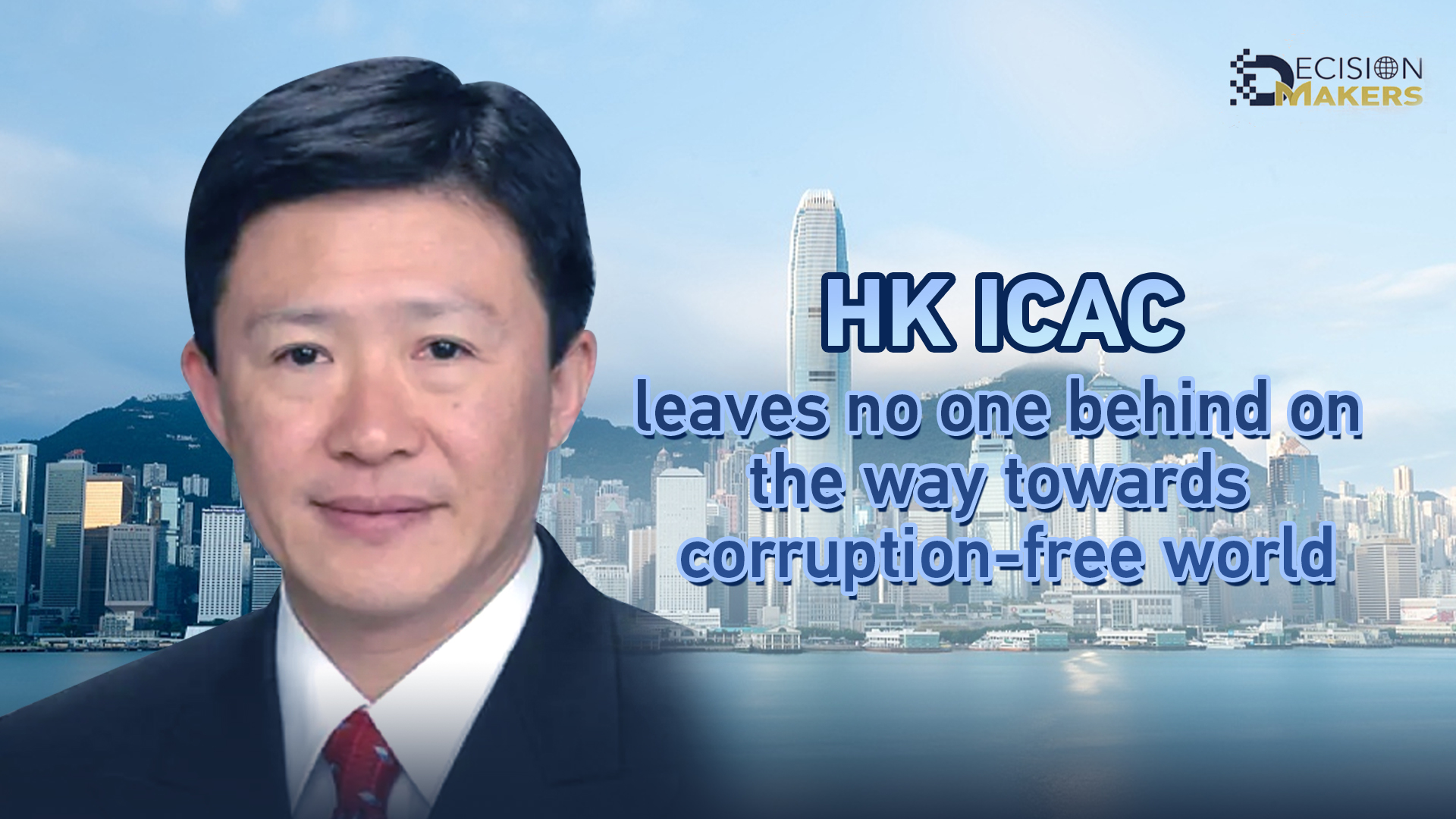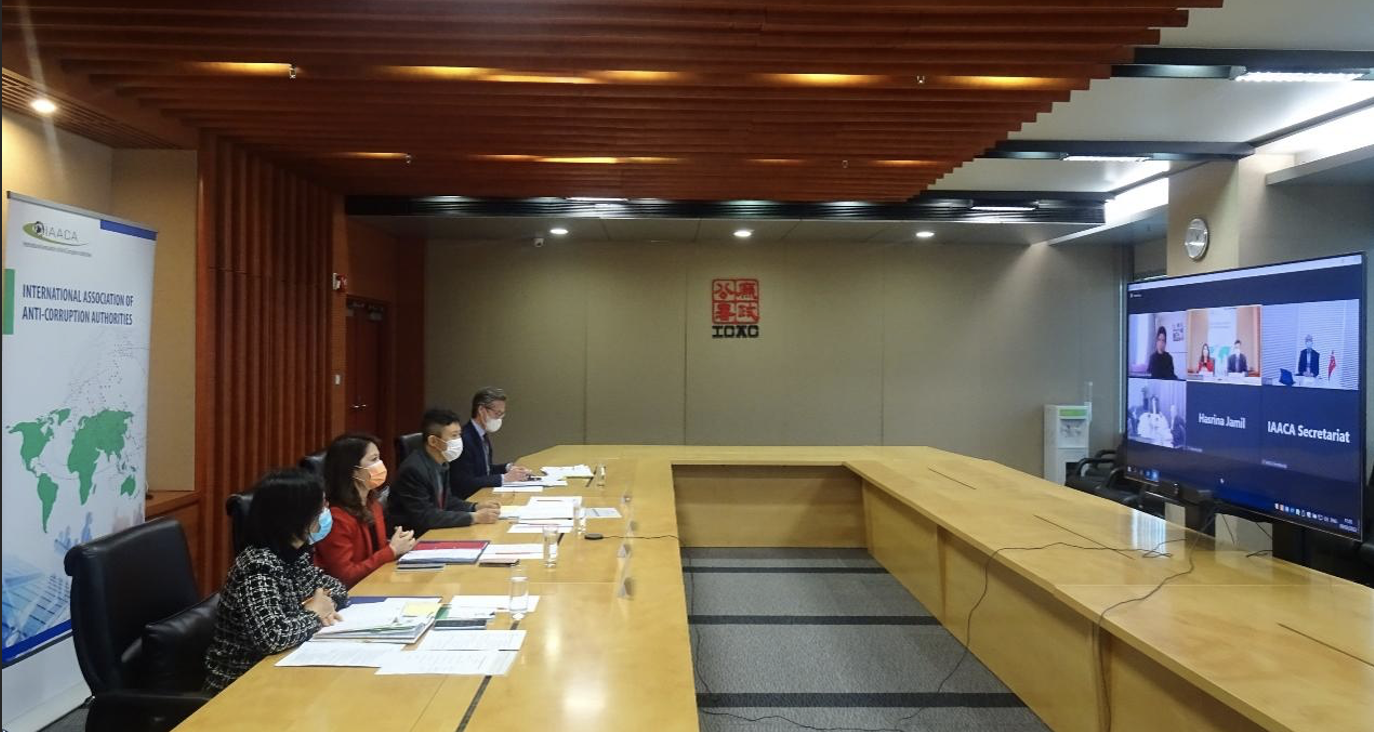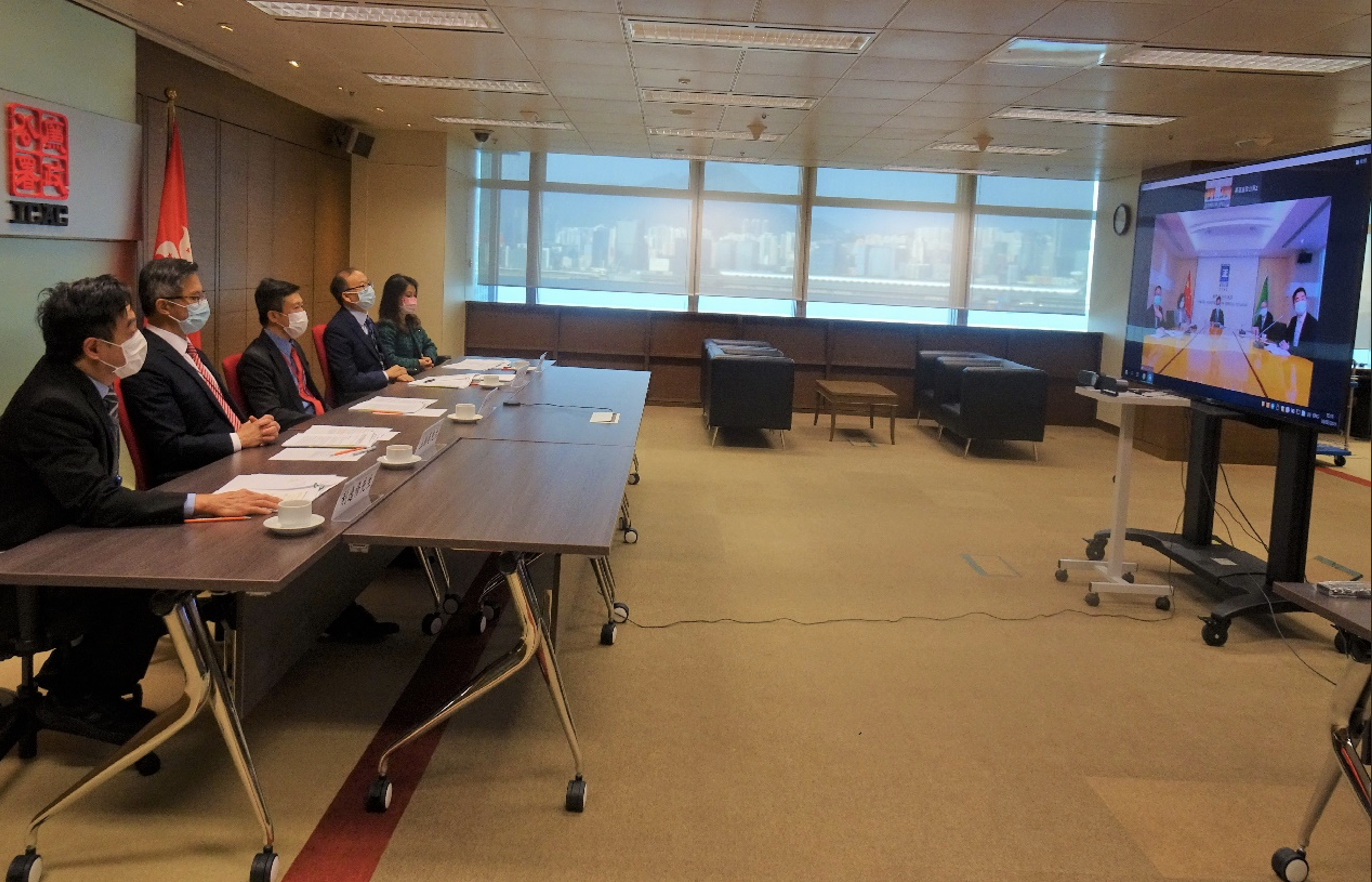
Editor's note: Decision Makers is a global platform for decision makers to share their insights on events shaping today's world. Simon Peh Yun-lu is the Independent Commission Against Corruption (ICAC) Commissioner and the president of the International Association of Anti-Corruption Authorities (IAACA). The article reflects the author's opinions and not necessarily the views of CGTN.
Fighting corruption is never a race among jurisdictions, nor is it a straightforward task that can be accomplished by an anti-graft agency single-handedly. In the globalization era and the digital age, international cooperation is what keeps us going forward. It is with this belief in mind that the Independent Commission Against Corruption (ICAC) of the Hong Kong Special Administrative Region (HKSAR) has been earnestly sharing its graft fighting experience with the world.
Established in 1974, the ICAC tackles corruption with a unique formula, combining law enforcement, prevention and education. This holistic strategy has successfully transformed Hong Kong from a corruption-plagued city in the 1960s and 70s to one of the cleanest places in the world.
According to the Corruption Perceptions Index released in January 2022 by the international anti-corruption watchdog Transparency International, the HKSAR was ranked the 12th cleanest place among 180 countries/territories surveyed and second in Asia. In fact, this goes beyond perceptions. A probity culture is entrenched in the local community as the ICAC annual opinion survey consistently revealed that the community was highly intolerant of corruption and nearly all respondents had not encountered corruption personally in the past 12 months.
The HKSAR has come a long way in the fight against corruption. Humbled by our past, the ICAC always stands ready to share our experience with overseas counterparts. Over the years, the ICAC has organized international anti-corruption conferences and training programs on a regular basis, receiving more than 3,000 officials annually from anti-corruption agencies (ACAs) and international organizations from different jurisdictions to exchange anti-graft experiences.

ICAC routinely organizes symposia to foster international anti-graft experience exchange. The picture was taken at Hong Kong Convention and Exhibition Centre, May 24, 2019. /ICAC
ICAC routinely organizes symposia to foster international anti-graft experience exchange. The picture was taken at Hong Kong Convention and Exhibition Centre, May 24, 2019. /ICAC
The ICAC is also designated by the Chinese central government as the authority to assist other signatories to the United Nations Convention against Corruption in building up their capacity in combating corruption. It is hence our international obligation to assist ACAs to develop their full-fledged capability to tackle the corruption crime.
We have been actively offering tailored capacity building programs to our counterparts, taking into consideration their cultural, political and legal differences. Since 2017, the ICAC has connected with over 60 ACAs of countries participating in the Belt and Road Initiative for capacity building collaboration, and conducted over 30 training programs for over 1,000 graft fighters from fellow ACAs. Despite the tremendous impact caused by the COVID-19 pandemic, the ICAC has continued its capacity building initiatives by switching to digital platform. In the past 18 months, 19 online training programs were delivered for around 650 graft fighters of overseas jurisdictions.
Over the years, we noticed that despite their passion and aspiration, graft fighters often faced various constraints, inter alia, limited resources, inability for the ACAs to operate independently as well as the deep-rooted culture and tolerance of corruption in the society. While it will be up to individual jurisdictions to bring about institutional changes in their countries, the ICAC, nevertheless, hopes to be able to shed some light along the way in ridding out the corruption crime.
Earlier this year, the ICAC has taken up a new role in the global fight against corruption. With the endorsement and full support of the Chinese central government and the HKSAR government, I am deeply honored to be elected the president of the International Association of Anti-Corruption Authorities (IAACA) and given the opportunity to further contribute to the global anti-corruption front.
The IAACA was founded in 2006 as the first global institution for the ACAs worldwide, aiming to promote the effective implementation of the United Nations Convention against Corruption and foster international anti-corruption collaboration. The then procurators-general of China's Supreme People's Procuratorate, Cao Jianming, had held the founding presidency of the IAACA for the first 10 years.
Since my assumption of IAACA presidency and Hong Kong ICAC's take-over of IAACA Secretariat in January 2022, the commission has been working closely with IAACA Executive Committee members to reach out to ACAs around the world with a view to strengthening communication and cooperation. We are also glad to share that since the new term of IAACA, 24 ACAs have joined the association as organizational members, bringing the total number of members to 147, involving 100 countries.

ICAC Commissioner Simon Peh Yun-lu convenes the first regional meeting with IAACA Executive Committee members of the Asia-Pacific region, February 9, 2022. /ICAC
ICAC Commissioner Simon Peh Yun-lu convenes the first regional meeting with IAACA Executive Committee members of the Asia-Pacific region, February 9, 2022. /ICAC
By deepening members' communication and collaboration through the newly-established regional coordination mechanism, and getting the association more involved in different international avenues and platforms, as well as enhancing the secretariat support to members of the IAACA, I hope we can strengthen experience exchange, enhance stakeholders' capabilities of fighting corruption, and ultimately play our part in assisting the world to achieve the United Nations Sustainable Development Goals' Target 16.5 which is "substantially reduce corruption and bribery in all their forms" by 2030.
Closer at home, the ICAC has joined hands with the Guangdong Provincial Supervisory Commission and Commission Against Corruption (CCAC) of Macao Special Administrative Region to establish a high-level exchange platform to enhance collaboration and foster closer ties in fighting graft in the Guangdong-Hong Kong-Macao Greater Bay Area. The three authorities have exchanged views on strengthening anti-corruption collaboration on various fronts, including combating cross-boundary corruption, promoting probity culture and organizing capacity building programs for the staff of the ACAs. Serving as a pilot project to strengthen synergy in the Greater Bay Area's anti-corruption collaboration, the ICAC is in active dialogue with the Qianhai Anti-corruption Bureau in fostering anti-graft cooperation.

ICAC officials are seen during an online meeting with CCAC to exchange views on the anti-corruption work of Hong Kong SAR and Macao SAR, February 18, 2021. /ICAC
ICAC officials are seen during an online meeting with CCAC to exchange views on the anti-corruption work of Hong Kong SAR and Macao SAR, February 18, 2021. /ICAC
During the anti-graft journey, some countries may travel faster while others may find the road rugged and bumpy. But as I have pointed out earlier, this is not a race. As one of the forerunners in this journey, the ICAC is mindful of the seemingly insurmountable hurdles and always stands ready to help. The commission will continue to fulfill its international obligation. We will leave no one behind. Together, we will one day reach our destination – a corruption-free world.
(If you want to contribute and have specific expertise, please contact us at opinions@cgtn.com. Follow @thouse_opinions on Twitter to discover the latest commentaries on CGTN Opinion section.)

